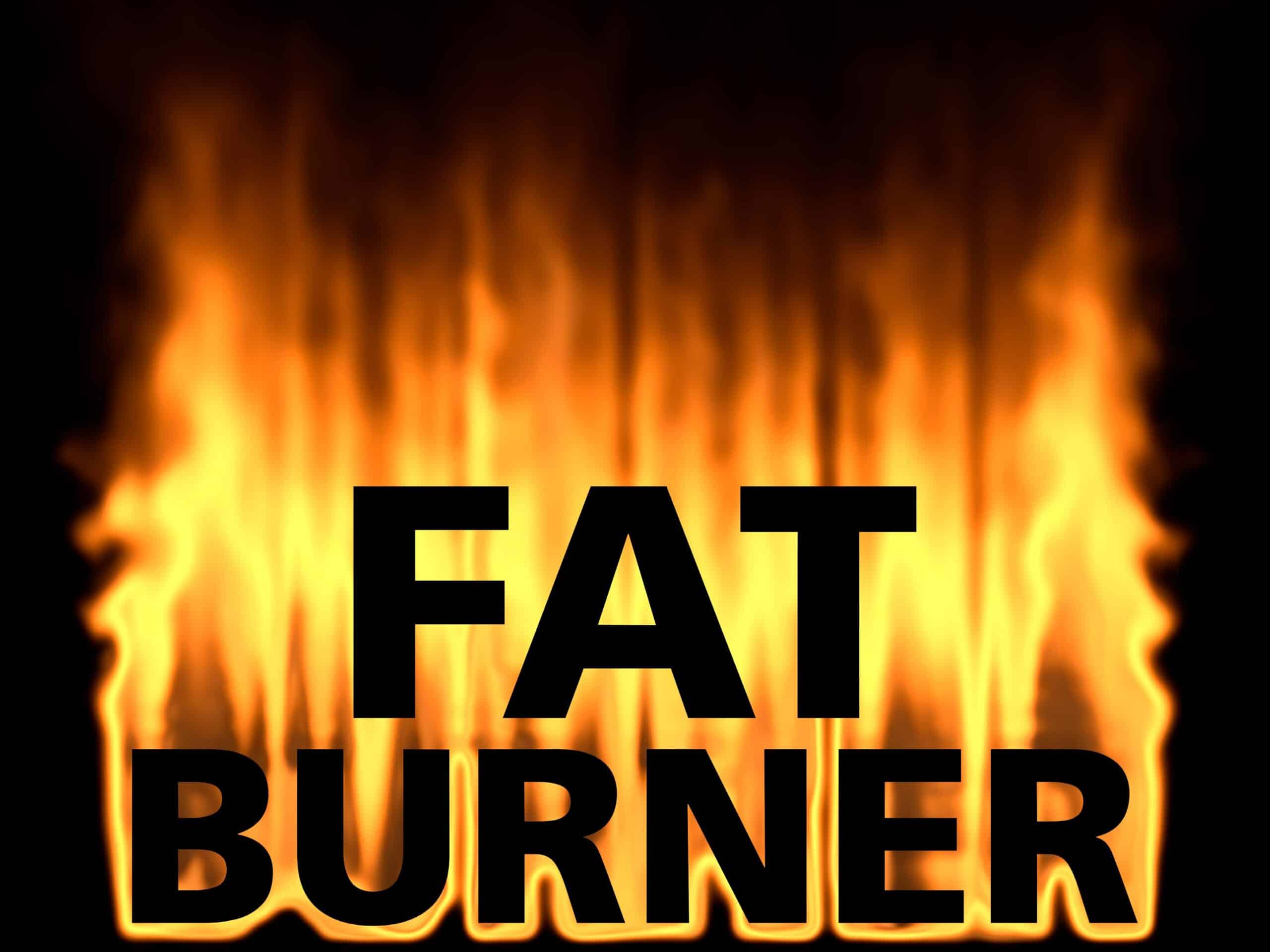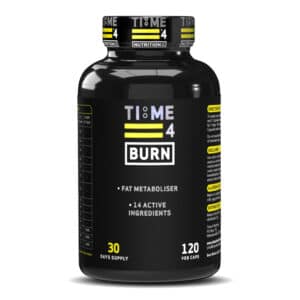What is the Best Fat Loss Supplement?
What is the Best Fat Loss Supplement?
What is the Best Fat Loss Supplement? – There is no magic bullet
(Click On The Reference Numbers In Blue For More Info)
Whether you are trying to lose those final few pounds in preparation for a competition or just want to get leaner to benefit your health and to look better, reducing body fat can be a considerable challenge. This is exemplified by the fact that almost two thirds of the population are on a diet the majority of the time and yet levels of obesity are at an all-time high.
It is well acknowledged that the most effective way to lose body fat is to create an energy deficit. That is, you need to consume less energy, or calories, than you expend. For example, a pound (0.45kg) of body fat contains approximately 3,500 kcal, so if you create an energy deficit of 500 kcal per day that would give you a weekly deficit of approximately 3,500 kcal, which equates to a pound of body fat lost.
This is most easily achieved by reducing energy intake by approximately 200 – 300kcal per day and expending an additional 300 kcal per day through physical activity.
Even if you reduce your daily energy intake by as little as 100 calories per day and increase your energy expenditure by just 100 calories, your energy expenditure over the course of a year would equal the amount of energy in 21 pounds (9.5kg) of body fat.
Although it sounds easy in theory, many of you reading this will know how difficult this can be in practice. One reason often cited for a lack of success in maintaining a healthy levels of body fat, is metabolism. Some people claim to have a slow one which causes them to gain weight easily, while others claim to have a fast one which allows them to eat whatever they like without increasing their levels of body fat.

What is the Best Fat Loss Supplement?
The aspect of metabolism they are generally referring to is their resting energy expenditure or resting metabolic rate (RMR). This is the minimal amount of energy (kcal) needed to maintain the body’s essential physiological functions, such as breathing, circulation and temperature regulation, while at rest. This accounts for approximately 50-75% of our total daily energy expenditure, with physical activity and digestion accounting for the remainder.
The most accurate assessment of a person’s RMR is achieved using specialist equipment. However, as this is impractical for most people, a simple formula can be used to provide a reasonably accurate estimate (plus or minus 10%).
If you are a male, you simply multiply your body weight in kilos by 24.2.
If you are female, then you simply multiply your body weight by 22
Using this formula, a 100 kg male would have an estimated RMR of 2,420 calories per day (100 x 24.2 = 2,420 kcal/day). While an 80kg female would have an estimated RMR of 1,760 calories per day (80 x 22 = 1,760 kcal/day)
To put this in perspective, the male in our example would need to consume 2,420 calories just to maintain his body’s essential functions at rest.

What is the Best Fat Loss Supplement?
Consequently, the more energy you expend at rest, the easier you will find it to maintain a lean physique, as fewer excess calories are available to be stored as body fat. This has led to the development of thermogenic supplements.
The term ‘Thermogenic’ means heat-producing. As we expend energy, we generate heat. This is because at best we humans have an efficiency of 26%, which means that 74% of the energy our body uses, is essentially wasted, as it is given off as heat. Therefore, supplements that boost our metabolism are referred to as being thermogenic.
Typically, these contain a selection of natural ingredients, such as Caffeine, Green Tea, Capsaicin and other plant extracts, which work together to increase our metabolism and so enhance fat burning. For example, one study showed that a single-dose of a thermogenic supplement led to significant elevations in RMR in comparison to baseline (1). An increase in thermogenesis of just 70-80 kcal per day can eventually lead to substantial weight loss (2). For example, over the period of a year, this could provide an additional energy expenditure of 22,500 to 29,200kcals, which is the energy equivalent of 6-8 pounds (2.7- 3.6kg) of body fat.
This where an effective thermogenic supplement like Time 4 Burn can make a valuable contribution to your fat loss strategy.
The key ingredients of Time 4 Burn have been shown scientifically to help to reduce body fat in a number of ways. These include:
- Increasing resting energy expenditure (2, 3, 4, 5, 10, 12, 14, 16, 17, 19, 26, 39, 40, 43, 44, 47)
- Increasing Thermogenesis(4, 12, 20, 23 , 37, 43, 44)
- Increasing expenditure during exercise (26, 42,)
- Increasing Fat Oxidation (2, 3, 6, 9, 12, 13, 14, 17, 27, 35, 36, 42)
- Reducing energy intake through a decrease in appetite (2, 8, 15, 21, 29, 31, 53, 54, 55)
- Increasing the Thermic Effect Of Feeding(11, 18)
- Enhancing Lipolysis(12, 44, 45, 59)
- Reducing blood fats (21, 22, 47, 50)
- Helping to regulate Lipid Metabolism(13, 25, 28, 30, 32, 33)
- Reducing abdominal fat (8, 12, 23, 25, 49)
- Helping to counteract the reduction in resting energy expenditure that occurs during weight loss (3)
- Helping to suppress genes that aid fat cell production and promote genes that reduce it (7, 33)
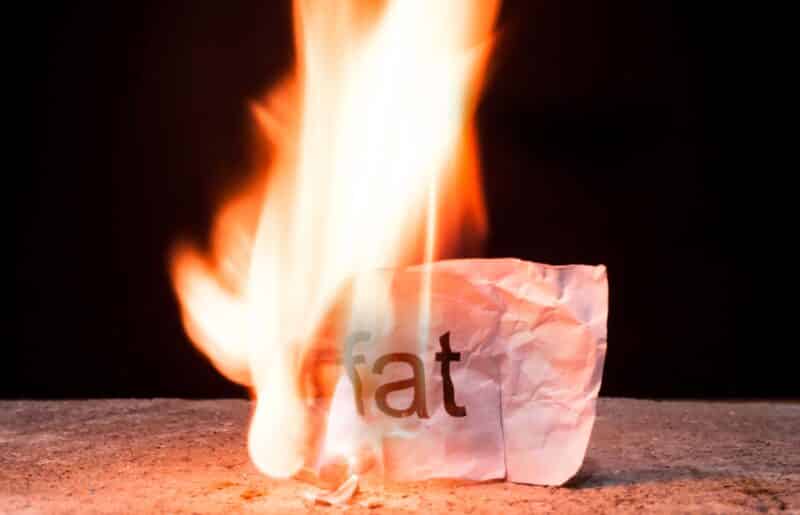
What is the Best Fat Loss Supplement? – What’s in Time 4 burn?
Time 4 Burn contains a unique combination of 14 specially selected evidence-based ingredients that work synergistically to give you the best results possible. These include Guarana, Caffeine Anhydrous, Green Coffee Bean Extract, Bitter Orange Powder, Choline, Cayenne Pepper, Green Tea Extract, L Theanine, L Tyrosin, Narangin, Black Pepper (Piperine), Vitamin B6, Chromium & Vitamin B12.
As we look at each of these in-depth, and a selection of the research that supports their use, you’ll begin to see why Time 4 Burn is such a great product and how it may benefit you.
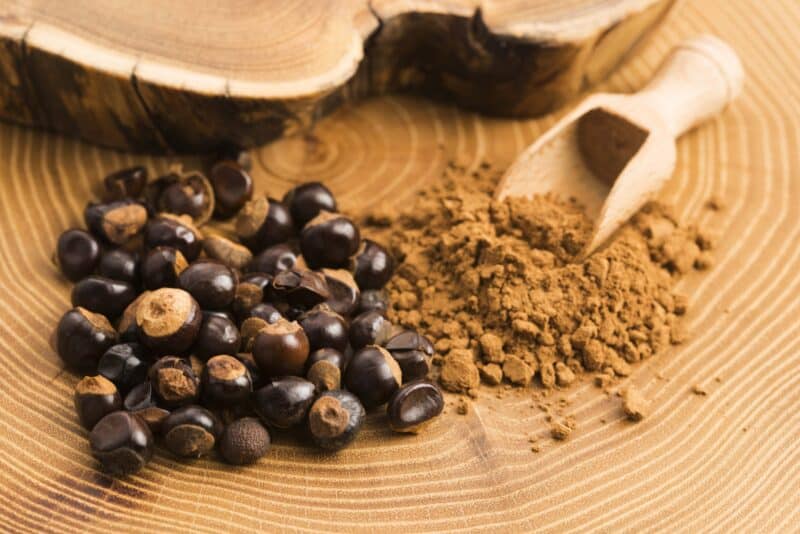
What is the Best Fat Loss Supplement? – What is Guarana (Paullinia cupana)?
Guarana is a Brazilian climbing plant native to the Amazon basin. It is prized for its fruit and has been used by Amazonian tribes for centuries for its therapeutic properties. It contains a range of stimulants, such as caffeine and theobromine, and also antioxidants such as tannins, saponins and catechins. It provides a number of benefits including enhancing fat loss, reducing fatigue, improving focus, boosting cardiovascular health and reducing pain.
Does Guarana increase fat loss?
Numerous studies have shown that Guarana has a positive influence on body composition and fat loss (7, 19, 22, 30) in a variety of ways.
A study by Lima and colleagues (7), investigated the effects of Guarana on the formation of fat cells, a process known as adipogenesis. The results showed that it has the ability to increase the response of anti-adipogenic genes, which inhibit the formation of fat cells and decrease the response of pro-adipogenic genes, which promote the formation of fat cells, thereby reducing the storage of fat.
Da Silva Lima et al., (30) found that supplementation with Guarana helped to control weight gain in mice even when consuming a high fat diet by stimulating metabolism and increasing the number of mitochondria. These are tiny organs known as the ‘powerhouses of the cell’ as they provide 90% of the energy needed to sustain life. They are essential for the conversion of food we eat into ATP which can then be used by the cells of the body to fuel their various functions.
Boozer et al., (22) conducted a randomized, double-blind placebo-controlled study, considered to be the ‘gold standard’ in research, to assess the effects of supplementation with a herbal dietary supplement containing Guarana and other ingredients on fat loss in overweight men and women. Subjects consumed either the supplement or a placebo for a period of 8 weeks. The results showed that the supplement produced significantly greater loss of weight (-4.0 kg) in comparison to the placebo (-0.8kg) and a greater in reduction in body fat (-2.1% versus 0.8%) over the 8-week treatment period. In addition, the supplement also produced greater reductions in hip circumference and levels of blood fats.
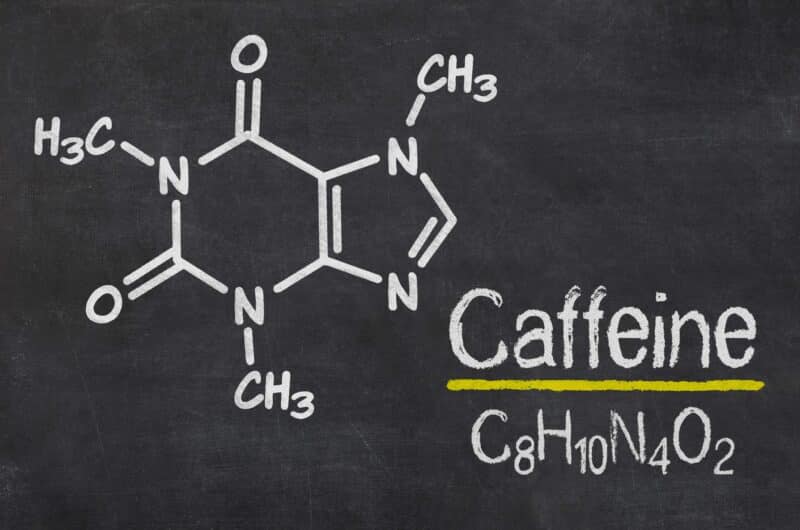
What is the Best Fat Loss Supplement? – What is Caffeine Anhydrous?
Caffeine is an organic compound which occurs naturally in various plants, such as tea, coffee, and cocoa, and acts as a central nervous system stimulant.
It is the world’s most widely consumed psychoactive substance, with approximately 90% of adults In Western countries consuming caffeine on a regular basis.
It is most frequently consumed in the form of beverages such as coffee, soft drinks and tea, and increasingly in functional beverages, such as energy drinks, and other caffeine-containing products, including pre-workout supplements, energy gels, etc.
Caffeine anhydrous is made from the seeds and leaves of coffee plants. The term ‘anhydrous’ simply means without water. Caffeine is extracted from the plant material and then dehydrated, which produces a more potent and highly concentrated form of caffeine powder.
Caffeine has been shown to provide many health and performance related benefits including increasing fat mobilisation and oxidation, resting energy expenditure, muscular strength and endurance, anaerobic power, aerobic performance, vigilance, and arousal. It can also reduce fatigue and reaction time.
Does Caffeine increase fat loss?
The difficulty in citing specific studies to support the use of caffeine to enhance fat loss is not that there is a lack of information regarding its efficacy; rather, there is an overabundance. Just a quick Google search using the terms “caffeine,” “fat loss,” “research” produces approximately 20,900,000 results.
The science clearly demonstrates the benefits of caffeine for fat loss (3,4,5, 6, 31,32) and identifies the physiological mechanism responsible. For example, Harpaz and colleagues (3) noted that caffeine improves fat loss by increasing thermogenesis and fat oxidation while reducing energy intake by inhibiting appetite.
The results of a study by Dulloo et al., (4) showed that just a single-dose of 100 mg of caffeine increased the resting metabolic rate of both lean and previously obese subjects by 3-4% over 150 minutes and improved the defective diet-induced thermogenesis (the energy used to digest and metabolise food) observed in the previously obese subjects.Furthermore, measurements of energy expenditure showed that repeated caffeine administration at 2 hour intervals over a 12-hour period increased the energy expenditure of both subject groups by 8-11%. This resulted in a significant increase in daily energy expenditure of 150 kcal in the lean subjects and 79 kcal in the previously obese subjects.
Other studies have also shown similar increases in energy expenditure associated with caffeine intake (5,6). Acheson et al., (31) found that caffeine ingestion increased energy expenditure by 13%. In addition, it doubled the turnover of lipids, of which 24% were oxidised, or ‘burnt’.
If you are struggling with your weight, caffeine’s benefits go far beyond just stimulating energy expenditure and increasing fat oxidation, as a study by Alshahrani and colleagues (32) on the health effects of dietary caffeine on overweight and obese individuals demonstrates. The results of the study, which involved 488 subjects, showed that those people in the highest third of dietary caffeine intake not only had a lower percentage of fat mass, but also higher muscle mass and a better appetite score in comparison to those subjects with a lower intake of caffeine. They also had lower total cholesterol and lower low density lipoprotein cholesterol (unhealthy cholesterol).
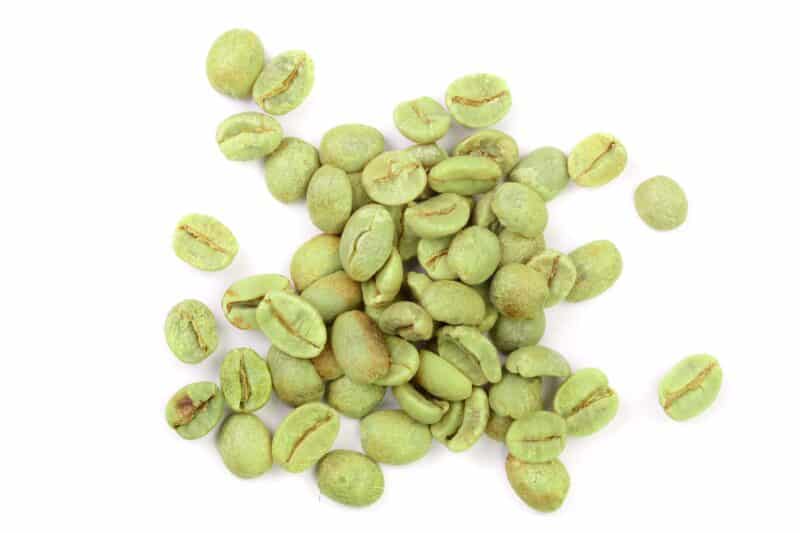
What is the Best Fat Loss Supplement? – What is Green Coffee Bean extract?
Green coffee bean extract is an extract of unroasted, green coffee beans. It contains high levels of chlorogenic acids. These are compounds with potent antioxidant and anti-inflammatory effects that can provide many health benefits. It also contains caffeine and is used in various fat loss products as it has been shown to aid fat metabolism, reduce abdominal fat deposits and appetite, and enhance energy expenditure.
Does Green Coffee Bean Extract increase fat loss?
Both animal and human trials have shown promising results regarding green coffee bean extract’s fat loss potential (8,9,33,34)
Onakpoya and colleagues (34) conducted a systematic review and meta-analysis of randomised human clinical trials investigating the efficacy of green coffee bean extract as a weight loss supplement. The results revealed a significant difference in body weight of approximately -5.5 pounds (2.47 kg) when using green coffee bean extract compared with a placebo.
The results of a study by Choi et al., (33) showed that supplementation with green coffee bean extract in high fat diet induced obese mice decreased body weight gain, fat mass, and liver weight significantly. Treatment with green coffee bean extract also reduced the expression of fat related genes.
Roshan and colleagues (8) found that 8 weeks of supplementation with green coffee bean extract not only produced reductions in body weight and waist circumference but also reductions in blood pressure and fasting glucose in individuals with metabolic syndrome (a cluster of conditions including obesity, high blood pressure and diabetes) and disordered carbohydrate and fat metabolism. Interestingly the weight loss in the green coffee extract subjects was almost twice that of the placebo group.

What is the Best Fat Loss Supplement? What is Bitter Orange (Citrus aurantium)?
Citrus aurantium is the Latin name for a fruit called Seville orange, or bitter orange. The juice, peel, and essential oil have all been used medicinally to treat a range of conditions including digestive problems, epilepsy, fatigue, insomnia, infections, and respiratory problems. It is also used widely in weight loss products, as it has been shown to increase energy expenditure.
Does Bitter Orange increase fat loss?
Results of a number of studies show that Bitter Orange can help to reduce body fat levels, primarily by increasing the oxidation of fat, metabolic rate and the thermic effect of feeding, i.e., the increase in energy expenditure associated with eating (10,11, 26,35,36).
A review by Stohs and colleagues (10) summarised the human studies involving Citrus Aurantium (bitter orange) and P-Synephrine, the main extract from bitter orange, which has a similar structure to ephedrine, a central nervous system stimulant that can increase energy expenditure.
The results of over 20 studies involving a total of approximately 360 subjects were assessed and showed that P-Synephrine alone as well as in combination products, increased resting metabolic rate and energy expenditure. Increases in weight loss were observed with Bitter Orange Extract/P-Synephrine-containing products when given for six to 12 weeks.
Exercise is typically employed as means of reducing body fat by oxidising or ‘burning’ the fat as fuel. There is evidence to show that supplementation with Bitter Orange can enhance this effect (35,36). A review by Ruiz-Moreno (35) showed that p-synephrine is effective in enhancing the rate of fat oxidation during incremental and continuous exercise. This effect has been observed in a range of exercise workloads between 30% and 80% of peak oxygen uptake (VO2peak). The authors noted that p-synephrine has the ability to increase the maximal rate of fat oxidation during exercise of increasing intensity without affecting the workload at which maximal fat oxidation occurs (Fatmax). Furthermore, the effect of p-synephrine on fat oxidation during exercise is normally accompanied by a reduction in carbohydrate utilisation. In light of these findings, the authors concluded that the acute use of p-synephrine, or p-synephrine-containing products, can offer benefits for those individuals seeking higher fat utilisation during exercise at low to moderate intensities.
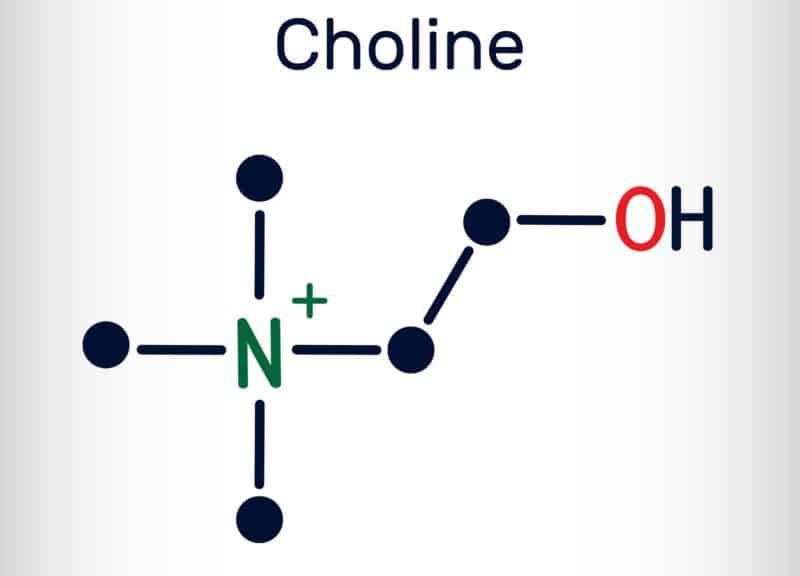
What is the Best Fat Loss Supplement? – What is Choline?
Choline is an organic, water-soluble compound. It is neither a vitamin nor a mineral, although it is often grouped with the vitamin B complex due to its similarities. It is, however, an essential nutrient, as it plays an important role in liver function, brain development, nerve and muscle function, supporting energy levels and maintaining a healthy metabolism. Supplementation with choline has been shown to aid the maintenance of healthy body composition and enhance fat oxidation. Although the body produces a small amount of choline, we need to obtain it from our diet to avoid a deficiency yet many people are not meeting the recommended intake.
Does Choline increase fat loss?
Supplementation with dietary choline has long been acknowledged to increase muscle mass and reduce body fat in animals (29). However, until recently, little information was available regarding the role of dietary choline in humans, but this situation is changing now due to the findings of several studies. Gao et al., (29) investigated the association between dietary choline intakes and body composition in a large population-based study.
Significant inverse correlations were found between dietary choline intake and all fat measurements, which included total percentage body fat, percentage trunk fat, percentage gynoid fat (i.e., fat on the breast, hips and thighs), weight, body mass index, waist circumference, and waist-to-hip ratio in both women and men. That is, those subjects with lowest dietary choline intake had higher levels of body fat and when subjects were ranked according to dietary choline, those with the highest intake had the lowest body fat.
As interesting as these findings are, they relate to dietary choline intake not supplementation, which begs the question would supplementation have similar effects on body fat? According to the findings of a study by Elsawy (28), the answer seems to be yes.
Twenty-two female athletes were divided into two groups, according to weight. The athletes in the experimental group took a choline supplement for one week before a competition. The results indicated that choline supplementation reduced body fat from 18.76 to 16.84 % and BMI from 24.97 to 21.93 without any side effects or a reduction in static strength.
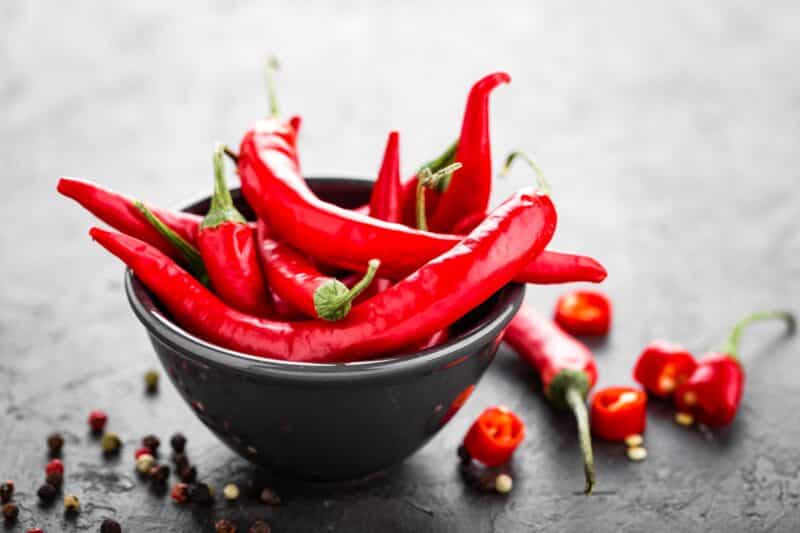
What is the Best Fat Loss Supplement? – What is Cayenne Pepper?
Cayenne peppers are a type of chili pepper. They were originally grown in Central and South America and brought to Europe in the 15th century. They are a popular spice used in many different styles of cooking, and have been used medicinally for thousands of years. Capsaicin, the active ingredient in cayenne peppers, can provide various health benefits including reducing blood pressure and pain, and aiding digestion. It has also been shown to aid fat loss by increasing energy expenditure, enhancing fat oxidation, reducing appetite, and increasing satiety.
Does Cayenne Pepper increase fat loss?
Capsaicin’s fat loss inducing potential has been the subject of numerous studies, which provide support for its use as a weight management supplement and identify the mechanisms responsible for its efficacy.
Janssens et al., (15) investigated the effects of capsaicin on appetite and energy intake. The results showed that the addition of capsaicin to the diet increases satiety and fullness, and tends to prevent overeating when individuals are free to east as much as they wish. In addition, capsaicin prevents the effects of negative energy balance on desire to eat.
A study by Ludy and colleagues (14) found that capsaicin increases energy expenditure and fat oxidation and suppresses appetite. It has been shown that consumption of capsaicin increases energy expenditure by approximately 50 kcal/day. Over time, this can result in clinically significant levels of fat loss (40).
Capsaicin has also been shown to stimulate the nervous system and improve control of insulin, which supports weight management and has positive effects for the treatment of diseases such as obesity, diabetes, and cardiovascular disorders. It also stimulates brown fat (37). This is sometimes referred to as ‘baby fat’ because it is more abundant in babies, where its role is to produce heat to ensure the baby’s survival. By producing heat, it helps us to expend energy.
As impressive as capsaicin’s positive affect on aspects of energy intake and expenditure are, how much fat can it actually help an individual to lose? The results of a study Rogers and colleagues (38) showed that after 12 weeks of supplementation with capsaicin, subjects’ body fat percentage reduced by 5.91% in comparison to a placebo and their fat mass was 6.68% lower.
Excessive abdominal fat is not only generally considered undesirable for cosmetic reasons, but is also implicated in the development of chronic health conditions such as diabetes and cardiovascular disease. Snitker and colleagues (39) found that 12 weeks of supplementation with capsaicin not only increased fat oxidation and reduced bodyweight, but also resulted in a significantly greater loss of abdominal fat in comparison to a placebo.
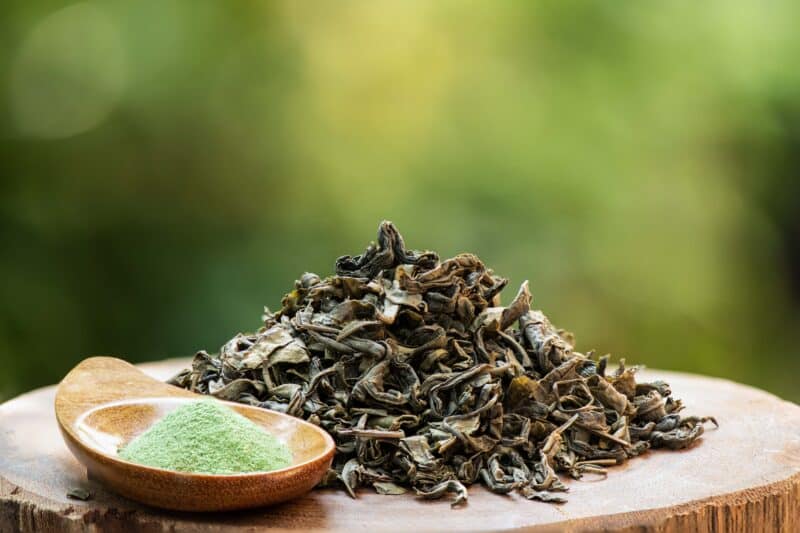
What is the Best Fat Loss Supplement? – What is Green Tea Extract?
Green tea extract is the concentrated form of green tea, one of the most widely consumed teas in the world. It is a rich source of antioxidants and can provide many health benefits, ranging from improving brain function to reducing the risk of type 2 diabetes, cardiovascular disease and obesity. It is commonly used in weight loss products, as it has been shown to increase energy expenditure both at rest and during exercise, enhance fat oxidation and reduce abdominal fat.
Does Green Tea Extract increase fat loss?
Results of a number of randomised, controlled trials have shown that the consumption of green tea catechins, antioxidants contained in green tea that help to prevent cell damage and provide other benefits, can help to reduce body fat (17,18,19,20,21, 27, 41,42).
For example, a review of 11 studies investigating the effects of green tea catechins (GTC) on body weight regulation byHursel and colleagues (41) found that GTC not only significantly decreased body weight, but also maintained body weight after a period of weight loss.
IJ and colleagues (21) evaluated the effect of green tea extract on weight reduction and changes of lipid profile and obesity-related hormone peptides in women with central obesity (excessive abdominal fat). The subjects were randomly assigned to either a green tea group or placebo group for 12 weeks. The green tea extract treatment resulted in significant weight loss, reduced waist circumference, and a consistent decrease in total cholesterol and LDL levels without any side effects or adverse reactions. Interestingly, the results also showed that treatment with green tea extract was associated with lower levels of the hormone ghrelin, which stimulates appetite, and elevated levels of adiponectin levels, a hormone which helps to regulate glucose levels, fat metabolism, and insulin sensitivity and has anti-inflammatory, anti-fibrotic, and antioxidant effects.
Performing a programme of exercise consisting of a mixture of cardiovascular and resistance training is often employed in a comprehensive fat loss programme. Research shows that the addition of green tea extract can enhance the fat burning effect of this approach. A review by Mashhadi and Hosseini (42) evaluated the results of 27 studies involving more than 800 participants which investigated the effects of green tea extract consumption on fat oxidation, body composition and blood lipid profile of subjects participating in cardiovascular and resistance exercise. The results showed that the consumption of green tea extract increases fat oxidation during cardiovascular training. Furthermore, regular resistance training combined with green tea extract consumption has benefits for enhancing body composition, and helps to achieve healthier blood fat levels in sedentary obese/overweight people. The combination of green tea extract and exercise has been shown to produce fat oxidation rates 17% higher than a placebo. Moreover, the contribution of fat oxidation to total energy expenditure was also significantly higher, by a similar percentage, after green tea extract supplementation (27).
A study by Rains et al., (17) identified several proposed mechanisms whereby green tea catechins (GTC) may influence body weight and composition. The main one is that GTC influences sympathetic nervous system (SNS) activity, increasing energy expenditure and promoting the oxidation of fat. Caffeine, naturally present in green tea, also influences SNS activity, and may act synergistically with GTC to increase energy expenditure and fat oxidation. Other potential mechanisms include modifications in appetite, up-regulation of enzymes involved in fat oxidation in the liver, and decreased nutrient absorption.
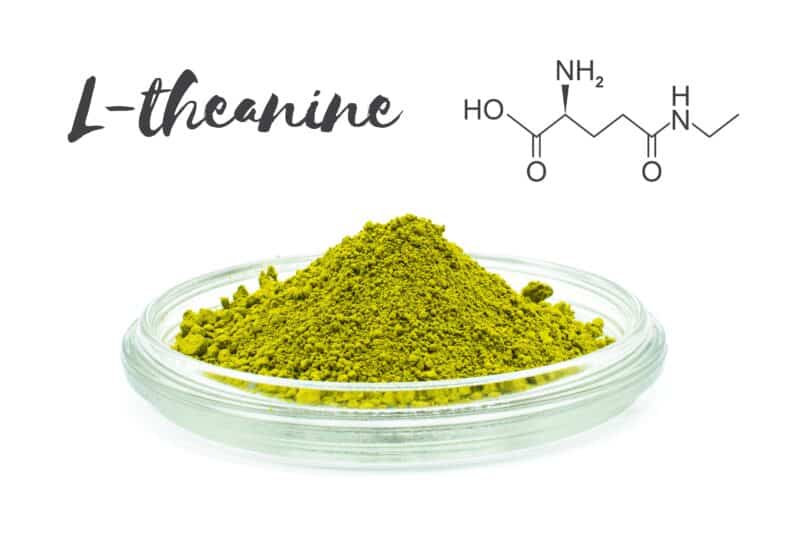
What is the Best Fat Loss Supplement? – What is L-Theanine?
L-theanine is an amino acid found most commonly in both green and black tea leaves and in small amounts in Bay Bolete mushrooms. It can provide a number of health benefits including reducing blood pressure, improving sleep quality, alleviating anxiety, enhancing immune function, and aiding fat loss, and has also been shown to have antioxidant, anti-inflammatory, cardiovascular, liver and kidney protective effects.
Does L-Theanine increase fat loss?
L-theanine attracted increasing attention from the scientific community in recent years due to its unique characteristics and beneficial effects, making it suitable for various potential applications in the development of functional foods, particularly those aimed at weight management.
A review by Li and colleagues (43) evaluated the effects of L-theanine supplementation and noted that it had been shown to have a positive influence on metabolism thereby highlighting its potential role in weight management.
Peng et al., (44) found that supplementation with L-theanine not only reduced obesity, but also improved glucose tolerance and insulin sensitivity, reduced plasma triglyceride, total cholesterol, and free fatty acids in mice consuming a high-fat diet.
One mechanism by which L-theanine has a positive effect on body composition is via its stimulation of body fat (44,45). The results of a study by He at al., (45) showed that the oral administration of L-theanine, increased the activity of the more metabolically active brown fat and white fat, which contributed to increased energy expenditure and improved body composition. Interestingly, L-theanine supplementation also promoted the browning of white fat, making it more metabolically active, which was attributed to the activation of a series of thermogenic genes (45). Furthermore, L-Theanine supplementation also improved the composition of the gut bacteria, which contributes to metabolic health.
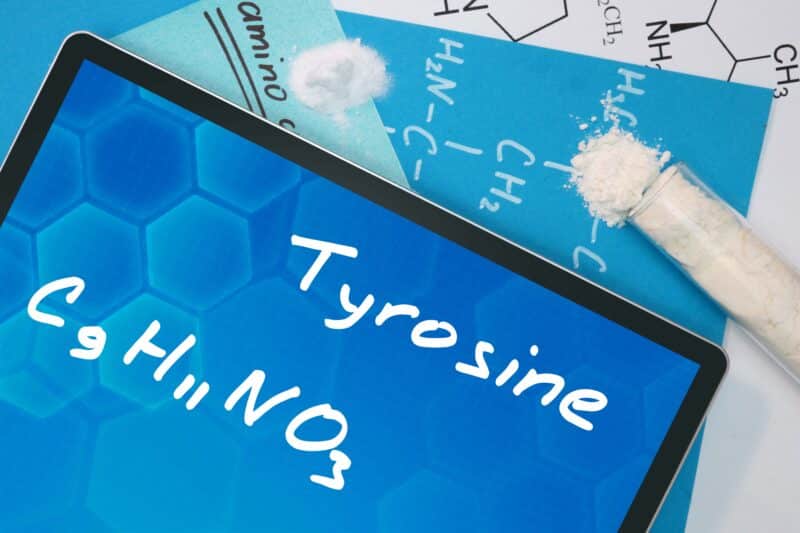
What is the Best Fat Loss Supplement? – What is L-tyrosine?
L-tyrosine is a naturally occurring amino acid synthesized in the body from L-phenylalanine. It is also found in chicken, turkey, fish, dairy products and most other high-protein foods. Tyrosine is involved in the structure of almost every protein in the body, and is an essential component for the production of several important brain chemicals known as neurotransmitters, which help nerve cells to communicate. It also plays a role in the production of melanin, the pigment responsible for hair and skin colour, and aids the function of organs responsible for making and regulating hormones, including the adrenal, thyroid, and pituitary glands.
Supplementation with tyrosine has been shown to improve alertness, attention focus, and submaximal exercise capacity. It may also stimulate the sympathetic nervous system and promote satiety, the breakdown of fat and thermogenesis to aid fat loss. Consequently, it is often included in weight loss and pre-workout supplements.
Does L-Tyrosine increase fat loss?
It has been suggested that L-Tyrosine can contribute to fat loss due to its role in the production of hormones which influence metabolism, such as the thyroid hormones, low levels of which are associated with a reduction in metabolic rate, leading to an increase in body fat. The current scientific evidence suggests that L-Tyrosines is a ‘team player’ when it comes to weight management, as number of studies (24,47) show that when combined with other substances. its supplementation contributes to a reduction in body fat.
For example, the results of a study Belza et al., (24) showed that supplementation with combination of tyrosine, capsaicin, catechines and caffeine, all of which are contained in Time 4 Burn, produced in an increase in energy expenditure and a decrease in body fat. This combination of substances has also been shown to increase energy expenditure in other studies (47).
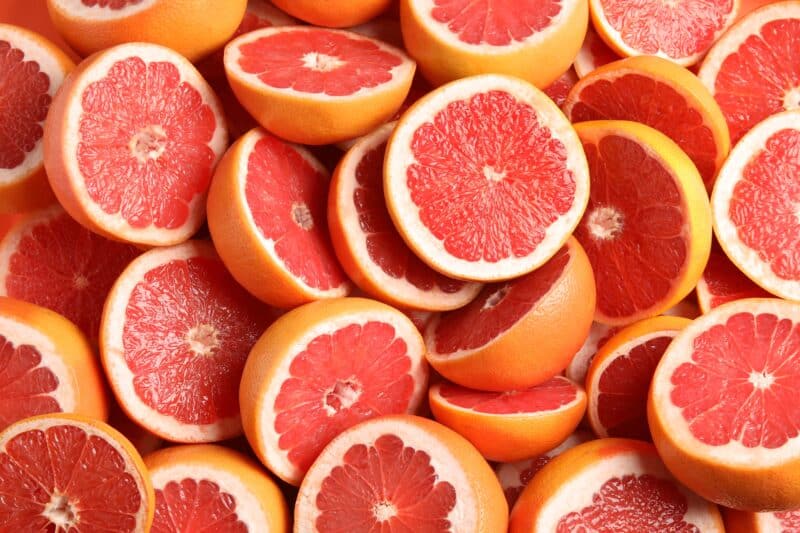
What is the Best Fat Loss Supplement? – What is Naringin?
Naringin is a substance that occurs naturally in citrus fruits, especially in grapefruit, where it is responsible for the fruit’s bitter taste. It contains various antioxidant and antimicrobial substances and is associated with numerous health benefits including promoting cardiovascular health, reducing blood sugar and cholesterol levels, supporting metabolic function, and aiding fat loss, particularly from the abdominal area.
Does Naringin increase fat loss?
Naringin is one of the main bioactive polyphenols in citrus fruits, the benefits of which for health have been acknowledged for centuries. More recently its beneficial effects on fat loss have been the subject of several studies.
A review by Kumar et al., (25) of 19 studies, found that supplementation with naringin reduced abdominal obesity, blood glucose, blood pressure, and improved blood fat levels.
The results of a study by Barajas-Vega and colleagues (47) showed that supplementation with naringin produced a significant decrease in body mass, total cholesterol and LDL cholesterol and an increase in adiponectin, a hormone produced by fat cells, which reduces inflammation and atherogenesis (the formation of fatty deposits in the arteries) and enhances the response of cells to insulin, in comparison to a placebo.
Dallas et al., (49) conducted a 12-week, randomised, double-blind, placebo-controlled trial to assess the efficacy and safety of a supplement containing extracts from several citrus fruits, including naringenin, on 95 overweight subjects. The results showed that the supplement reduced abdominal fat (-9.73% vs. -3.18%), waist (-5.71% vs -1.56%), hip circumference (-4.71% vs. -1.35%), and body weight in comparison to a placebo. Furthermore, the supplement improved inflammatory, glycaemic, and oxidative status with no adverse reactions.
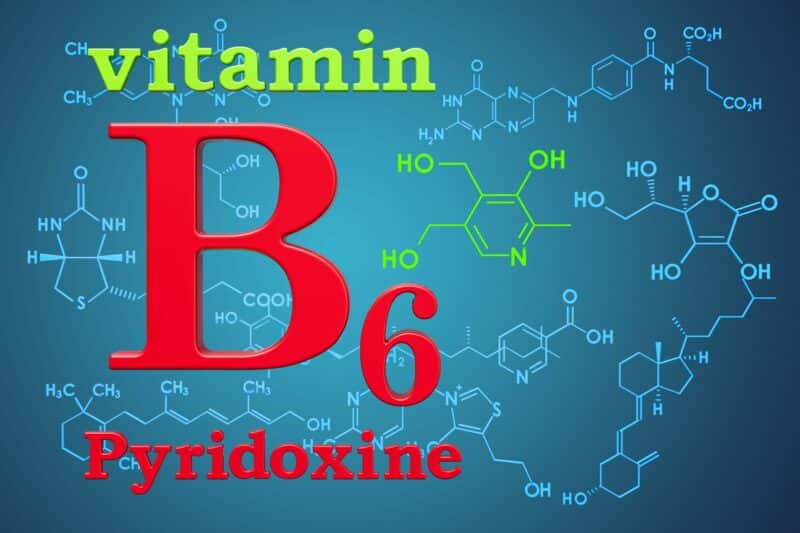
What is the Best Fat Loss Supplement? – What is Vitamin B6?
Vitamin B6 (Pyridoxine) is a water-soluble vitamin that plays an important role in energy production, the immune system, metabolism (breaking down and digesting protein, carbohydrates, and fats) glycogen storage, regulation of hormonal activity, function of the nervous system, formation of red blood cells and the metabolism and transport of iron. It also contributes to normal psychological function, the reduction of tiredness and fatigue, and normal homocysteine levels. It has been shown to aid the maintenance of healthy body fat levels in a number of ways. The body cannot produce vitamin B6, so it must be obtained from foods or supplements, which leaves certain populations at greater risk of deficiency.
Does Vitamin B6 increase fat loss?
Vitamin B6 supplementation is associated with improved body composition, i.e., increased muscle and reduced body fat (50,51,52). Although the mechanisms responsible are not fully understood, it is likely due, at least in part to its role in fat metabolism, where it is involved in the transportation, deposition, oxidation, and synthesis of fat for energy. After consumption, some of the fatty acids are broken down from food to provide immediate energy. The rest are stored as triglycerides within fat cells. By making more fat available for energy, it is less likely to be stored as body fat. Vitamin B6 also plays an important role in protein metabolism and testosterone production and ultimately muscle growth and maintenance.
Haidari et al., (50) conducted a randomised controlled trial to evaluate the effect of vitamin B6 supplementation on body composition and metabolic status in obese and overweight women. Subjects received either a vitamin B6 supplement or placebo for a period of 8 weeks. The results showed that in the vitamin B6 group, weight, body mass index (BMI) fat mass, waist circumference, fasting insulin, insulin resistance, total cholesterol, low-density lipoprotein, and triglycerides decreased from the baseline values.
The results of a randomised controlled trial by Rodríguez-Rodríguez et al., (51) showed that a greater increase in blood levels of Vitamin B6, resulted in a greater increase in fat-free mass during a period of weight loss.
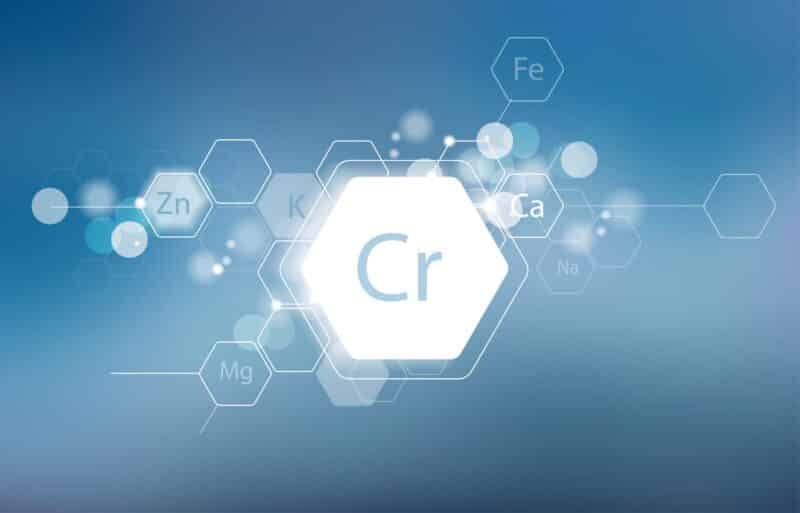
What is the Best Fat Loss Supplement? – What is Chromium Picolinate?
Chromium is a mineral, which is considered essential because it must be obtained from our diet. It plays an important role in in the breakdown and absorption of carbohydrate, proteins, and fats and promotes the action of insulin, the hormone which controls glucose levels in the blood. Chromium picolinate is the mineral chromium attached to three molecules of picolinic acid. This form of chromium is commonly used in dietary supplements as it is absorbed more effectively by the body than other forms. Chromium picolinate has been shown to have a number of benefits for weight management. These include helping to attenuate weight gain by reducing food intake, hunger levels, and cravings. It may also help to control blood glucose levels.
Does Chromium Picolinate increase fat loss?
Due to chromium’s role in nutrient metabolism and its possible effects on eating behaviour, a range of studies (53,54,55) have evaluated its effectiveness as a fat loss aid.
Tian and colleagues (53) reviewed nine randomised controlled trials involving 622 overweight and obese subjects, which evaluated the effectiveness of chromium picolinate for reducing weight. When the study results were combined, those participants receiving chromium picolinate lost an average of 1.1 kg (2.4 Ibs) more than those receiving a placebo.
Other reviews of randomised controlled trials have also shown supplementation with chromium picolinate to provide a similar significant reduction in overall weight loss and body fat percentage compared with a placebo (54).
It seems that chromium picolinate exerts its influence on body composition by manipulating eating behaviour. A study by Anton and colleagues (55) evaluated the effects of chromium picolinate on food intake and satiety. 42 overweight women with carbohydrate cravings received either a chromium picolinate supplement or placebo for 8 weeks. Food intake at breakfast, lunch, and dinner was directly measured at baseline, week 1, and week 8. The results showed that supplementation with chromium picolinate reduced food intake, hunger levels, and cravings and resulted in a decrease in body weight in comparison to a placebo. The authors concluded chromium picolinate’s role in food intake regulation appears to be due to its direct effect on the brain.
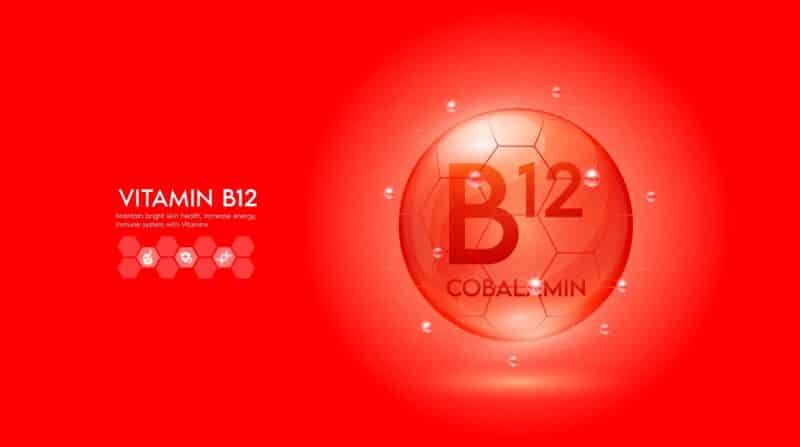
What is the Best Fat Loss Supplement? – What is Vitamin B12 (Cobalamin)?
Vitamin B12 is an essential water-soluble vitamin. It plays an important role in fat and amino acid metabolism, energy production, normal function of the nervous and immune systems, the formation of red blood cells, bone health, and DNA synthesis. It also contributes to psychological function and a reduction in tiredness and fatigue. Vitamin B12’s influence on body composition appears to be due to its role in fat metabolism and energy production.
Does Vitamin B12 increase fat loss?
Although vitamin B12 occurs naturally in many animal products and is found in certain fortified foods, vegans, vegetarians, older adults, people with digestive issues that can interfere with nutrient absorption, and those on restricted diet, have an increased risk of deficiency, which science shows, can have a negative impact on body composition.
For example, a review by Boachie et al., (56) highlighted vitamin B12’s key role in fat metabolism and noted that deficiency is linked to increased fat accumulation and obesity.
This link between vitamin B12 status and body fat has been shown in a number of other studies (57,58,59). Baltachi and colleagues (57) found that having low levels of vitamin B12 was associated with a higher risk of overweight and obesity. While the results of a study by Sun et al., (58), which involved more than 9,000 participants, showed that higher blood levels of vitamin B12 were associated with a lower risk of obesity.
Although there is evidence to suggest an association between low vitamin B12 status and increased body fat, can increasing vitamin B12 levels help to reverse this trend?
The results of a study by Zheng et al., (59) suggest it may. These showed that supplementation with B vitamins reduced body weight gain and blood fat levels by improving energy metabolism-related enzyme activities in rats. The authors concluded that humans may also benefit in a similar way.
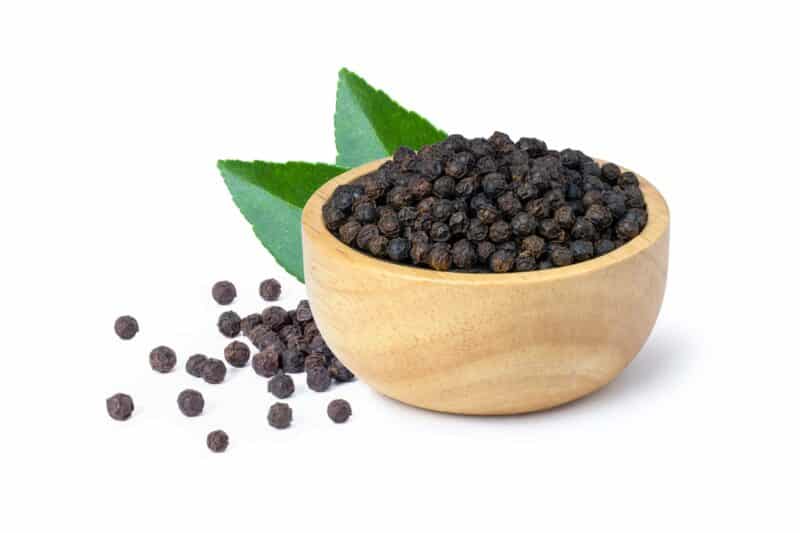
What is the Best Fat Loss Supplement? – What is Piperine?
Piperine is a substance derived from black pepper. It has been shown to reduce the formation of fat, and improve digestion, and insulin sensitivity. It has a long history of use in traditional medicine, where its primary role is to enhance the bioavailability of other compounds, allowing them to be more easily absorbed by the body. This helps to ensure that you get the maximum benefit fromall of the ingredients in a product. For example, one study found that piperine boosts the absorption of curcumin (main constituent of turmeric powder) by up to 2000% (46).
Time 4 Burn: The whole is greater than the sum of its parts
All of the ingredients in Time 4 Burn have been carefully selected based on the scientific evidence demonstrating their ability to contribute to fat loss. Although a number of these ingredients target different physiological mechanisms, they have also been shown to work together to produce a synergistic effect; i.e., one that is greater than the sum of their separate effects, which has been demonstrated in numerous studies (13,19, 22, 23, 24, 47).
For example, Bérubé-Parent et al., (19) found that a mixture of green tea and Guarana extracts produced a significant increase in 24 hour energy expenditure of approximately 180kcals. Over a year, this adds up to an additional 65,700 kcal, which is the energy equivalent of 18.77 pounds (8.51kg) of body fat
Belza et al., (24, 47) showed that supplementation with combination of tyrosine, capsaicin, catechines and caffeine produced an increase energy expenditure and a decrease in body fat. While Zheng and colleagues (23) evaluated the anti-obesity effects of three major components of green tea, catechins, caffeine and theanine and found that combinations of these substances reduced weight gain and fat accumulation.
Marginal gains for fat loss
The concept of marginal gains has revolutionised certain sports such as cycling. In essence, it is about how small incremental improvements in any process add up to a significant improvement when they are combined. For example, if you make just a 1% gain in enough areas, this will ultimately result in a considerable improvement. Time 4 Burn applies this concept to fat loss, as each ingredient will provide a certain benefit, which, in isolation, may not seem to be particularly significant, but when combined with the beneficial effects of the other ingredients, can contribute to a substantial loss of body fat.

What is the Best Fat Loss Supplement? Conclusion
We are not suggesting that Time 4 Burn is ‘magic bullet’ that will enable you to get ‘ripped’ without any other interventions. The science tells us that to optimise fat loss we should aim to reduce our energy intake by 200 – 300kcal per day (i.e., eat less) and expend an additional 300 kcal per day through an appropriate programme of physical activity (i.e., move more). This modest energy deficit of 500kcal per day will help you to lose body fat while minimising any loss of lean tissue. As a simple as this sound in theory, achieving it in practice can be a considerable challenge for many people. This is where Time 4 Burn can make a valuable contribution to your fat loss plan. This carefully selected combination of evidence-based ingredients provides a multifaceted approach to fat loss by employing different mechanisms of action, such as increasing fat oxidation and energy expenditure, with each one providing a small improvement which, when combined, can add up to a significant loss of body fat. We all need a helping hand at some time, such as a spot when we are struggling to complete a heavy set. Think of Time Burn as a helping hand to get you across the finishing line to your fat loss goals. You’ll need to put in the work, but Time 4 Burn can make the process that bit easier and help you to succeed.
Isn’t it time you felt ‘the burn’?
